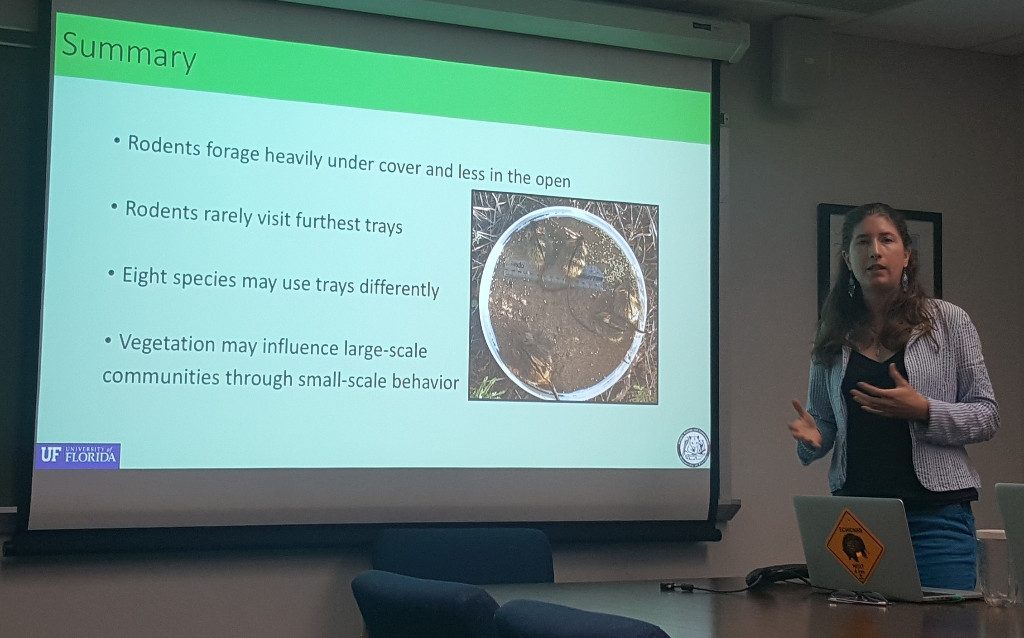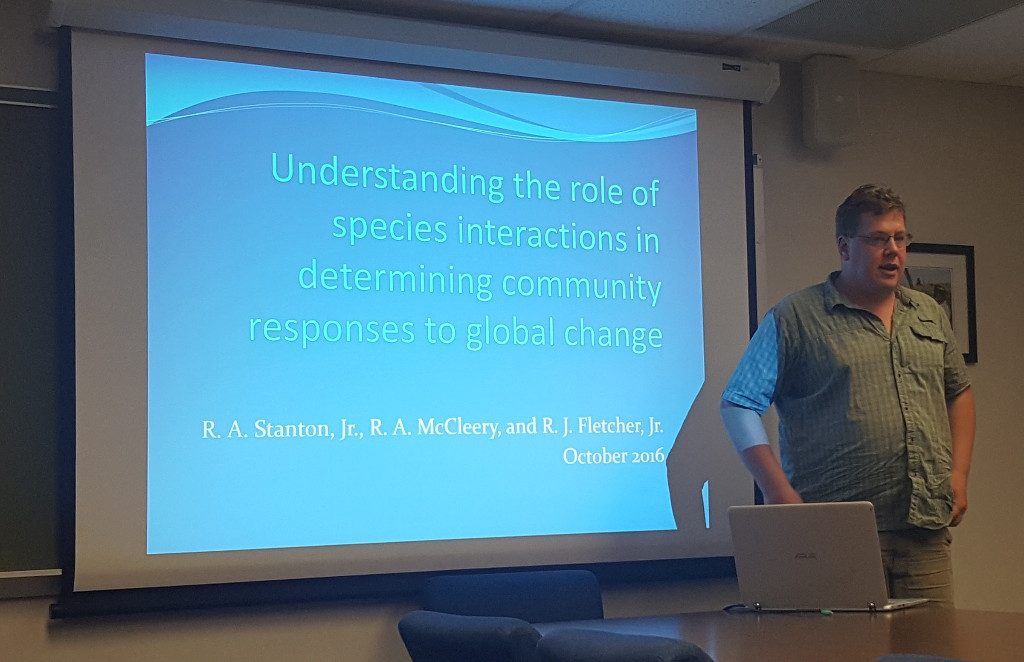 On Thursday October 13th, Annie Loggins (above) and Rich Stanton (below) presented at a NRM Roundtable held in Grinter 471.
On Thursday October 13th, Annie Loggins (above) and Rich Stanton (below) presented at a NRM Roundtable held in Grinter 471.
At the roundtable, research was generally presented on the effects of climate change and resource management policies within national parks on animal life and community structure. Loggins (MS, SNRE) works on rodent communities in southern Africa, particularly comparing the effects of a high versus low density elephant population on small rodents in Kruger National Park, South Africa, to the Hlane National Park, and Mbuluzi and Mlawula Reserves in Swaziland. In essence, as elephants cause tree damage and knock over vegetation, Loggins argues for the need to get a better handle of the effects of these occurrences for a number of indigenous small mammals. She sets up an experimental design testing for how ‘safe’ different types of small mammals feel, in terms of their willingness to access food, in different degrees of shrub gradients. Overall, Loggins’ results point to a greater perceived risk by most small mammal species in less dense shrub environments.

Stanton’s (PhD, SNRE) research also analyses the effect of shrub cover and risk of environment on animal populations, but particularly as they affect vertebrates and especially bird community structures. Stanton measures the changes in detectability and occurrence of both non-predatory and predatory birds, as well as their breeding habits. Species interaction is also a major component of his work, and he analyzes the degree to which predatory birds in encroached savannah are determining bird community structure. His preliminary findings from the field suggest that there are less nests in the treatment as opposed to control plots, so both occurrence and breeding habits of birds may be affected by global change.